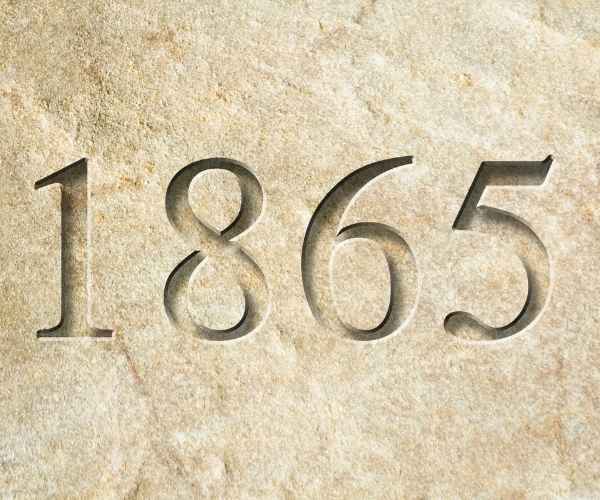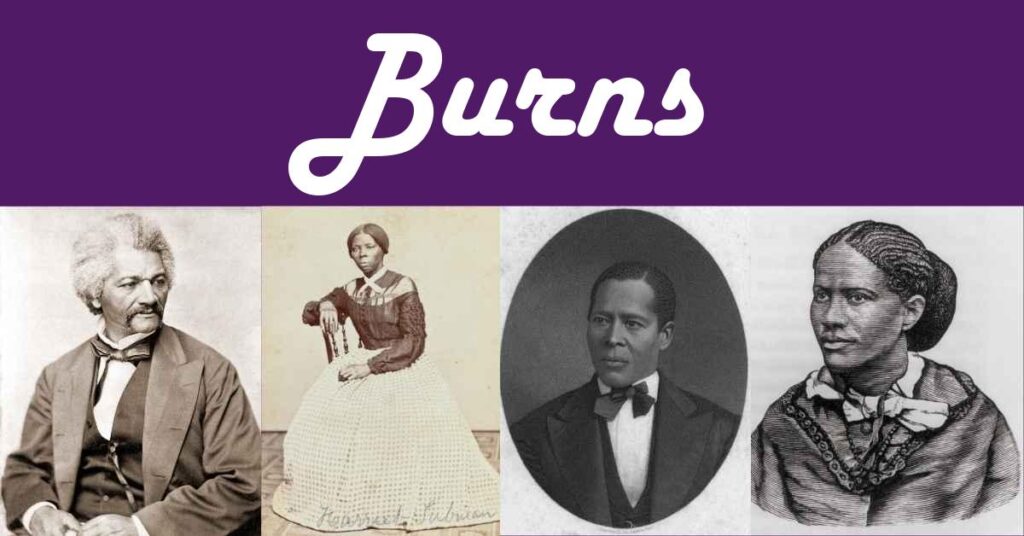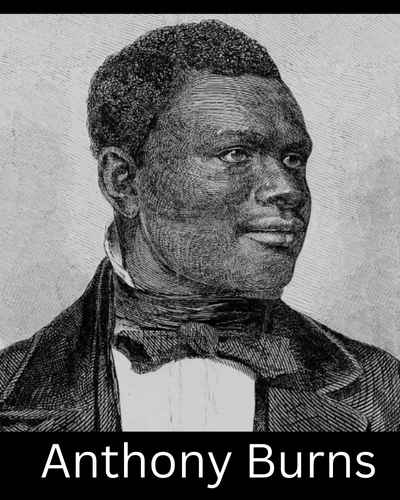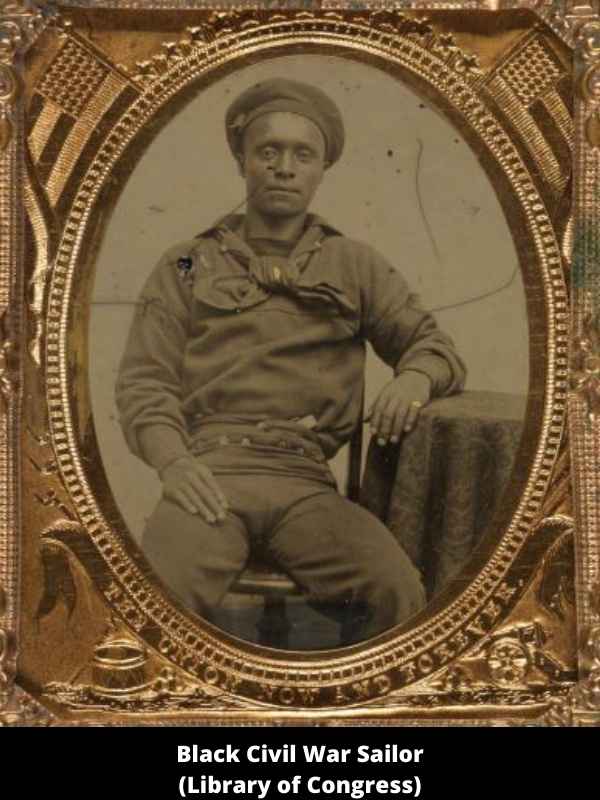The 2010 U.S. Census recorded 23,329 black Americans with Burns as their last name. That represented 14% of the total of 165,925 entries.
This article compares census numbers before and after the Civil War. We also look at historic African American people named Burns in the last three centuries.
We end with a review of early records of black military service in the United States.
Burns Before The Civil War
The 1850 census was the first to record all free members of households together. Before this, people who were not white were not named in the federal census.
In 1850, there was a box to enter color on the census. There were three categories: white, black, and mulatto. The third term is the language of the time, and I will use mixed in this article.
If you are researching your black Burns ancestors in census archives, be sure to check the two non-white categories. Do not assume that the people recording the information were always correct.
1850 Federal Census
There were 115 people named Burns who were recorded as black in the 1850 census. 110 were recorded as mixed.
Because they are in the main federal census, we know that they were free citizens.
There was a total of 16,974 free citizens named Burns that year. There would be one more census in 1860 before the Civil War.
After The Civil War

The 1870 census was the first survey after the Civil War and the Emancipation Proclamation. All African Americans were included.
Those who were omitted in 1850 and 1860 because they were enslaved were now recorded.
2,210 people named Burns were recorded in the 1870 census as black and 426 as mixed.
There was a total of 44,637 people with the name.
Burns In The 1900 And 1940 Census
The mixed category was dropped in 1900, so we just need to look at the black numbers this time.
The 1900 census recorded 5,238 people with the last name Burns as black within a total of 67,667 that year.
By the way, the mixed category returned in the 1910 and 1920 censuses. It was dropped again in 1930, but replaced with extra categories for colored and non-white in a way that seems confusing now.
This changed again in 1940 and we can simply focus on one black category.
The 1940 census recorded 9,046 people named Burns as black within a total of 98,137.
Historic Black Figures With The Burns Surname

Here are some notable African Americans in history with Burns as their last name.
Anthony Burns
- Born: 1834
- From: Stafford County, Virginia
- Died: 1862
Anthony Burns was born into slavery in Virginia. The youngster did tasks around his masters’ homes and learned to read and write from their children.
He joined the Baptist Church as a teenager and became a preacher in the black community. He also organized secret gathering to teach fellow slaves to read and write.
Burns was sent to work in Richmond where the sailors urged him to escape to the North. One of these allies stowed him away on a ship bound for Boston.
There, he found work in a clothing store. But Burns was pursued by a slave catcher and brought to the courthouse under the Fugitive Slave Act of 1850.
Several abolitionist lawyers came to the defence of Burns. His attorneys included Robert Morris, an African American lawyer who had been born in to slavery.
The case revolved around whether Burns owner could prove that the man in court had been his slave. The judge found in favor of the slave owner.

The sentiment in Boston was against the Fugitive Act. A crowd gathered at the courthouse and rioted, causing the death of one of the guards.
To prevent rescue, the mayor of Boston deployed marines, infantrymen, and a militia to escort Burns to a ship back to slavery in Virginia.
Nearly a year later, Burns’ friends in Boston got wind of where he was. They raised the funds to purchase his freedom from his new owner.
When Burns returned to Boston he was welcomed by a cheering crowd.
Anthony Burns eventually settled as a preacher in St. Catharine’s, Ontario, where there was a large community of former escaped slaves.
Others arrested under the Fugitive Slave Act
Three years before Burns was arrested in Boston, a fugitive named Thomas Sims also stowed away on a boat for freedom in the city. He too was charged in a trial that aroused great public disquiet. Burns was sent back to slavery in Georgia.
John Price was arrested in Oberlin, Ohio under the Act. There, a large group of abolitionists stormed the building of his incarceration and got him to Canada.
William and Ellen Craft managed to get away to England as slave catchers arrived in Boston to recapture them.
Lugenia Burns
- Born: 1871
- From: St Louis, Missouri
- Died: 1947
When Lugenia Burns’ father died, she had to leave school to work for several charitable organizations in Chicago. However, she pursued her studies again from the age of nineteen.
When she married John Burns, they moved to Atlanta where her husband eventually became president of Atlanta University.
Lugenia set up an organization in 1908 called the Neigbhorhood Union to send college students to interview black communities about their needs. This let her arrange better services for the communities.
After her successful local activism, she worked to end segregation in the YWCA in the 1920s and admonished the white members who opposed equality.
As vice-president of the Atlanta chapter of the NAACP, she organized workshops on voting legislation and citizens’ rights. The model was highly influential on the next generation of civil rights activists.
Burns In Black Military Records
Military records are a rich resource of for family history research. Here are examples of the Burns surname from several different military services.
Buffalo Soldiers
Five regiments for black soldiers were formed during the Civil War. They were known as the Buffalo Soldiers.
Their records are part of the national archive of military monthly returns. The information includes the year and place of birth, where they enlisted, their occupation, and their height.
One of the earliest military entries for Burns was in 1867. Samuel Burns was a Sergeant in the Tenth Cavalry. He was stationed in 1867 at Fort Harker, Kansas.
One of the later entries was in 1912. Glen Burns was a Saddler Sergeant in the Tenth Cavalry.
If you are researching military ancestors, there is a free index of these records on Ancestry.com and FamilySearch.org.
You have to create an account on either website, but you do not need to pay for the Buffalo Soldiers archive.
Black Civil War Sailors

The National Parks Service has a free archive of African American sailors during the Civil War.
The information includes their age, height, rank, occupation, and where and when they enlisted. It also includes every ship that they served on.
You can search the database on the National Parks website.
Riley Burns
One of the earliest entries for Burns was for Riley Burns from Bath County, Kentucky. He enlisted in 1863 at Vicksburg when he was 37 years old.
The record shows that Riley was assigned on October 1863 to the ship Judge Torrence.
His naval rank was 1st Class Boy. This usually referred to young men who signed up when they were under eighteen.
Louis Burns
One of the later entries was for a sailor who enlisted at Point Lookout in April 1864. Louis Burns was twenty-two years old and his birthplace was in Baltimore, Maryland.
Before he enlisted, he was a brickmaker and bricklayer.
Louis was mustered to the ship Wyandank on the first of July, 1865.
His naval rank was Landsman. This was the lowest rank in that era. It was given to recruits with little sea experience.